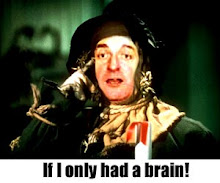A Prophet
 A Prophet - If you see one French prison movie this year....
A Prophet - If you see one French prison movie this year....A young Muslim man begins a 6 year stint in a French jail. He may or may not have been innocent of the crime for which he has been incarcerated, but then as they say in Shawshank, everyone is innocent in jail. Whether or not he was, he is soon forced to shed blood and in so doing becomes involved with Corsican mafia, hash dealers, and a dangerous, but heady career in crime.
There are enough critics out there singing the praises of 'A Prophet', without adding my voice. For what it's worth though, I will. It's a powerful film that can stand alongside epics like 'The Godfather' without any embarrassment. However, before we get too fawning, it should be said that it is still a melodrama and as subject to the contrivances that characterise much melodrama. Characters are introduced whenever their particular talents can aid our likeable antihero, Malik, in his descent/ascent. They are also removed - through convenient illness or Government decree - as needed. Continuing the convenience, our hero's charmed life is impacted by a curious (and not entirely convincing) touch of the supernatural (he gets out of one particularly dangerous predicament, and gets out to his advantage, after a very suspect episode). His protection from a Corsican mafia boss, while familiar from many other movies, conveniently smooths the way for much of Malik's activities, especially in getting him out of the prison. These are not flaws per se; they allow for an engrossing, intelligent thriller that has a lot to say about success, opportunity and morality. But they are plot contrivances that take this film out of the naturalistic setting that writer and director Jacques Audiard otherwise seems to be striving for (with its commentary on politics, society, and religion).
It should also be said that, unlike say 'The Godfather', I did not for one moment feel any real condemnation of Malik in his rise. Other critics have seen a moral fall and so a moral message to the film. Without wanting to give too much away, there is no real Michael Corleone moment where the door is shut on a lost humanity, no that I could see anyhow.
These could be small quibbles (or big ones depending on your attitude to an amoral cinema), but there is no doubting this is rivetting cinema. Worthy of the praise, of the Grand Prize at Cannes, and of your time, try to see this one.


0 Comments:
Post a Comment
<< Home